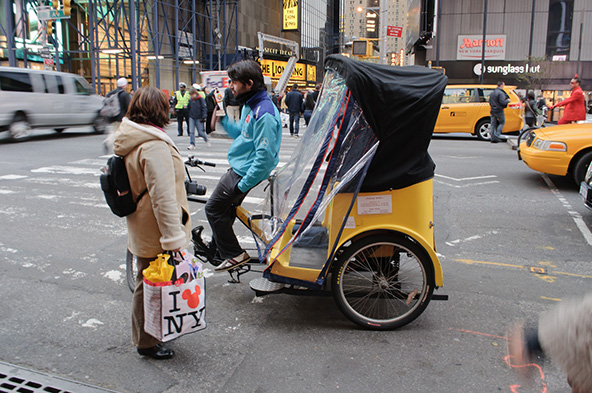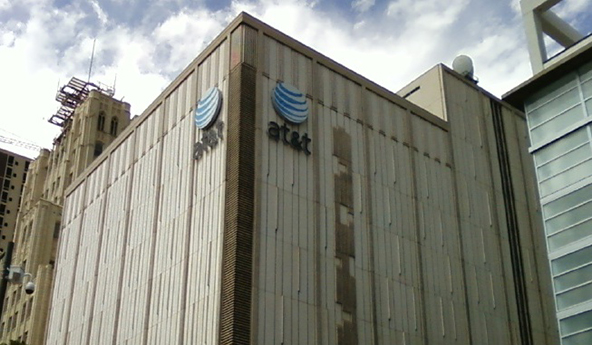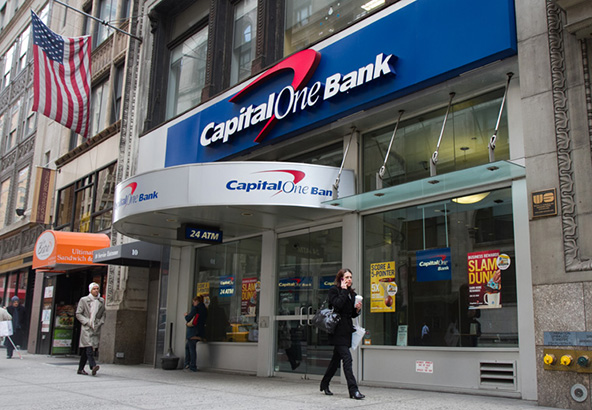On Pedicabs, Square, Credit Card Declines and Fraud

Prominently featured in my news feed this morning are two hugely hyped up reports of otherwise insignificant stories involving credit card companies, declined transactions, inconvenienced cardholders and petty fraudsters. The first one, by USA Today’s Byron Acohido, is about “inexplicably denied”, although entirely legitimate, credit card transactions, which leave “good customers” feel “the episode was inconvenient, embarrassing or irritating”. The author indicates understanding that there is a perfectly good reason for some transactions to be declined, and in fact quotes people who tell him so, but not before his melodrama about how “financial firms are angering customers” is fully played out.
The other horror story, this one brought to us courtesy of The New York Post (I got to it via Business Insider) , involves villainous New York pedicabbies who are grossly overcharging unsuspecting tourists, using their phone-based Square credit card acceptance devices. Now, on its own, this report could be, I guess, newsworthy for it could serve to warn people against the scam. However, the authors — Brianna Farulla and Joe Anuta — go way overboard by insinuating that Square is covering up for the scammers. And even BI’s reporter hasn’t felt it necessary to say a word or two about the foolishness of such an accusation. But I will.
On Credit Card Declines
First, though, let’s take a look at the transaction decline issue. Here is how the USA Today’s report begins:
If you’ve been embarrassed by having your payment card transaction inexplicably denied lately, you are not alone.
In survey results released on Monday to USA TODAY, authentication firm Finsphere found 27% of all U.S. card holders have experienced a false decline, while 48% are concerned with false declines.
Finsphere’s survey of 1,200 adults, conducted by Penn Schoen Berland, found 82% of card holders who experienced a false decline felt the episode was inconvenient, embarrassing or irritating.
“Having your card declined when you’ve paid your bill and you have credit available is really perplexing for a lot of people,” says Mike Buhrmann, CEO of Finsphere.
Having thus stirred up indignation among his readers, the author then proceeds to inform us that banks actually aren’t exactly benefiting from the declines, either, because they are losing money from lost transaction fees. The real culprit, Acohido writes, are “[c]ybercriminals [who] have become expert at leveraging Internet communications and commerce to scale up payment card fraud”. So why then is the caption of the cover image talking about “financial firms… angering customers”? Shouldn’t it be about credit card companies doing the right thing in protecting cardholders? For that is exactly what they are doing.
See, a credit card transaction is not exactly declined at random. Instead, a decline is triggered when something about a transaction looks out of the ordinary. The most common cause for a decline of a legitimate transaction is the use of a credit card at a location that is far from the cardholder’s billing address. Of course, the most plausible explanation of such use is that the cardholder is traveling, but your card issuer cannot know that, which is why credit card companies ask you to share your travel plans with them in advance. Moreover, the issuers’ fraud prevention systems are becoming increasingly sophisticated, so that to minimize the occurrences of declines of legitimate transactions. But here is a question for you (and for Acohido, for that matter): how exactly is a card issuer not doing the right thing by its cardholder when it declines a transaction, which has a reasonable likelihood of being fraudulent?
On Swindling Pedicabbies and Square
OK, the title of The New York Post’s pedicab piece says it all:
Smartphone app lets pedicabs pick your pocket – and pedal away scot free.
And then the authors immediately proceed to explain how the alleged aiding and abetting of the pedaling criminals is done:
The smartphone credit-card app called Square allows crooked pedicab drivers to overcharge unsuspecting tourists and pedal away scot free, several hacks told The Post yesterday.
The pedicabbies often tack on fees through the app without alerting the customers, who don’t know how much they’ve been charged until they see their credit-card statements and it’s too late, the drivers said.
And just so that the reader is left in no doubt about Square’s complicity in the crimes, the authors recruit the help of an authoritative insider of the pedicabbing community:
Laramie Flick, acting president of the NYC Pedicab Owners Association, said the Square mobile card-readers invite fraud and give honest rickshaws a bad name.
“Square just lets you charge people whatever you want,” he said. “They are helping these guys tremendously by doing this. It’s super easy to get an account and super hard for people who get cheated to find you again. Why is that?”
By the way, “acting president of the NYC Pedicab Owners Association”! Anyway, why is it so easy to get a Square account? Well, because that is what users want, that’s why. Before Square launched it service back in October 2010 it was all but impossible for a sole entrepreneur or a very small business to accept credit cards. Since then, millions of businesses and consumers have started using Square or one of its countless copycats. And everyone likes the simplicity of the service. Everyone, that is, but Flick. But does Square make it impossible for fraud victims to get their money back? No, it does not. Square is subject to precisely the same laws and regulations governing the resolution of fraudulent transactions with which every other processor has to comply. The process begins with the cardholder alerting her card issuer about the suspected fraudulent transaction. The issuer then immediately credits the cardholder’s account for the disputed amount until the case is resolved. And if the transaction is indeed found to be fraudulent, the cardholder keeps the credit. So the cardholder is fully protected against any possible loss.
And then there is the truly absurd matter of disclosing the name of the driver. Here it is:
The city Department of Consumer Affairs is trying to have Square subpoenaed to turn over the name of the driver, who appeared on the receipt as SQ Pedicabs Inc.
Aaron Zamot, spokesman for the tech company, said victims’ banks can contact Square to obtain details of any questionable transactions — except for contact info for suspected fraudsters.
Of course the receipt contains the name of the business, not of its owner — that is what all transaction receipts are supposed to show. Here is another question for you: once your plumber has fixed your leaking pipes, who do you pay — him personally or his business? And of course Square will not reveal the name of the business owner, unless the disclosure is requested by a proper authority — they have no right to do that.
The Takeaway
So just how bad are these two articles? Well, I don’t think their authors are exceptionally ignorant about the inner workings of the credit card industry. In fact, I’m not even sure whether they are ignorant at all; I even suspect that at least Acohido might know better, although I wouldn’t bet too much on it. The real issue is not the authors’ ignorance — real or faked — but the alacrity with which they vilify credit card companies, which are just doing their job, and doing it well. I know the authors believe that this is what their readers want, but that doesn’t justify their actions.
Image credit: Wikimedia Commons.



It’s called “Fraud Freak” it happened to me twice today, for transactions that were each less than 10% of my gross monthly pay.
And quite frankly, it’s getting on my @#$% nerves.
Credit Card Industry, behold as I solve your problem for you.
——————————————————————————————–
1. Chip and PIN. For God’s sake just do it already! You’re making the USA look like an incapable luddite in front of the world. 2015 yeah yeah I’ll believe it when I see it.
2. The transaction should NOT be straight up declined. It has obviously never occurred to anyone that there could easily be an option other than “Declined” Registers should say “Transaction Pending” while the cardholder replies to a “Yes, it was me” SMS. It won’t inconvenience others waiting in line any more than a decline fiasco. Everyone has cell phones, USE THEM.
3. Universal Bank notifier app for travel. Allow GPS pull and secondary challenge response. Website for non smartphone owners. I’m surprised some kale juice drinking Bay Area startup hasn’t gotten some VC $$ for this already.
——————————————————————————————–
Bottom line: If card holders are in good standing and have sufficient funds, under no circumstances should they be denied access to their funds when requested. Banks should NOT throw customers under the bus under the guise of looking out for them. It is the Banks’ responsibility to ensure the transaction gets through for their customer without declining it, if the suspicious transaction can be validated non-fraudulent. I believe this to be the true consumer protection issue.